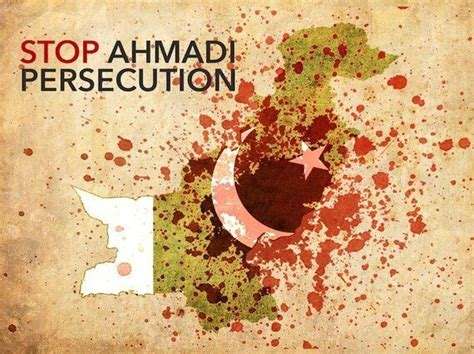On the morning of Friday, May 16, 2025, Dr. Sheikh Mahmood Ahmed, a 58-year-old doctor in Sargodha, was tragically gunned down while attending to his patients. His murder is not just another headline; it marks the third brutal killing of a member of Pakistan’s Ahmadiyya community in less than five months, a grim testament to the growing wave of violent extremism sweeping the country. Dr. Mahmood’s death is a chilling symbol of a community living in the constant grip of fear, under a shadow that seems to grow longer and darker with every passing day.
Since the start of 2025, three Ahmadis have been killed in acts of targeted violence that shocked the conscience. The first was Laeeq Cheema, lynched in broad daylight in one of Karachi’s busiest markets, his life stolen in a violent public spectacle. Barely a week later, another life was violently cut short — Muhammad Asif, a young Ahmadi man riding home on a motorcycle in Kasur, was ambushed by unknown assailants and fatally shot. These deaths are not random tragedies but part of a calculated campaign to terrorize and marginalize an entire community.
For Muslims in Pakistan, Friday is a day of spiritual reflection and prayer. For the Ahmadiyya community — deemed non-Muslim under the country’s laws and social order — Friday has morphed into a day of dread. The very day meant for communal worship and peace now signals threats, violence, and death. The repeated targeting of Ahmadis after Friday prayers reveals a deliberate strategy to sow fear, fracture social cohesion, and push them further to the margins of society.
This violence is fueled by extremist groups like Tehreek-e-Labbaik Pakistan (TLP), whose fanatical ideology thrives on religious intolerance and hate. The TLP’s influence is visible in the harassment and destruction of Ahmadi religious spaces. Local police, pressured by TLP, have repeatedly demolished minarets on Ahmadi mosques, citing the country’s blasphemy laws — particularly section 298-C — which prohibit Ahmadis from “posing as Muslims.” In the dark of night, TLP supporters have desecrated graveyards, smearing black paint over Quranic verses on tombstones and smashing headstones. One horrific incident in the Roda area of Khushab saw 90 Ahmadi graves vandalized in a single attack.
The online sphere echoes the same virulent hatred. The YouTube channels and social media pages run by TLP leaders and followers brim with hate speech, vile slurs, and direct calls for violence against Ahmadis — including their most vulnerable: women and children. The normalization of this hate speech fuels real-world violence, creating an environment where attacks are not only tolerated but encouraged.
The scale of persecution faced by Ahmadis over the decades is staggering and heartbreaking. Since 1984, at least 285 Ahmadis have been murdered, 500 injured in violent attacks, and 4,581 cases registered against them under discriminatory laws. Their places of worship have not been spared; more than 100 Ahmadi mosques have been demolished or sealed by authorities. Graves have been desecrated on a shocking scale — nearly 600 incidents of grave vandalism recorded — with a surge in such violations in 2024 and the first half of 2025.
These are not isolated or sporadic violations. They represent a systematic, state-enabled, and society-condoned assault on the basic human rights of a peaceful religious minority. The fundamental rights guaranteed by Pakistan’s Constitution — the right to life, liberty, security of person, freedom of thought, conscience, and religion — ring hollow for Ahmadis. Instead of protection, they face state-sanctioned discrimination and violent persecution, a reality that tears at the very fabric of justice and humanity.
Equally appalling is the deafening silence of Pakistan’s government and law enforcement agencies. Despite repeated incidents of violence and intimidation, no special security arrangements have been put in place to safeguard Ahmadi places of worship or community members. No clear condemnation or accountability measures have been introduced. This official apathy not only emboldens extremists but also sends a dangerous message that the state condones or even supports these acts of hatred.
The deliberate timing of attacks after Friday prayers — when Ahmadis gather in their places of worship — is a chilling tactic designed to maximize harm and spread terror. These orchestrated assaults carry the fingerprints of well-organized extremist groups like the TLP, whose powerful propaganda machinery normalizes hatred and incites violence. The repeated targeting of Ahmadis after their sacred communal gatherings is a calculated strategy to disrupt their religious freedom, spread fear, and divide communities.
What is needed now, more than ever, is urgent and decisive action.
The failure to act decisively has perpetuated a vicious cycle of impunity. Extremist elements operate freely, spreading fear and violence with little fear of consequences. The international human rights community must raise its voice and pressure Pakistan to fulfill its responsibilities to protect all its citizens, irrespective of their faith.
Yet, beyond governments and institutions, the responsibility also rests with society. Fear and silence are the bedfellows of hatred. Many human rights defenders and activists fear speaking out for the Ahmadiyya community, intimidated by threats from extremist groups. But true courage lies in breaking this silence and standing in solidarity with the persecuted.
Every citizen who values justice must reject the hateful rhetoric and violence inflicted upon Ahmadis. Solidarity must go beyond words; it demands a collective front to defend human dignity, religious freedom, and the basic rights of all Pakistanis. To remain silent in the face of such injustice is to be complicit.
The shadow that darkens the lives of Ahmadis must finally be lifted, and the light of humanity, tolerance, and justice restored.
